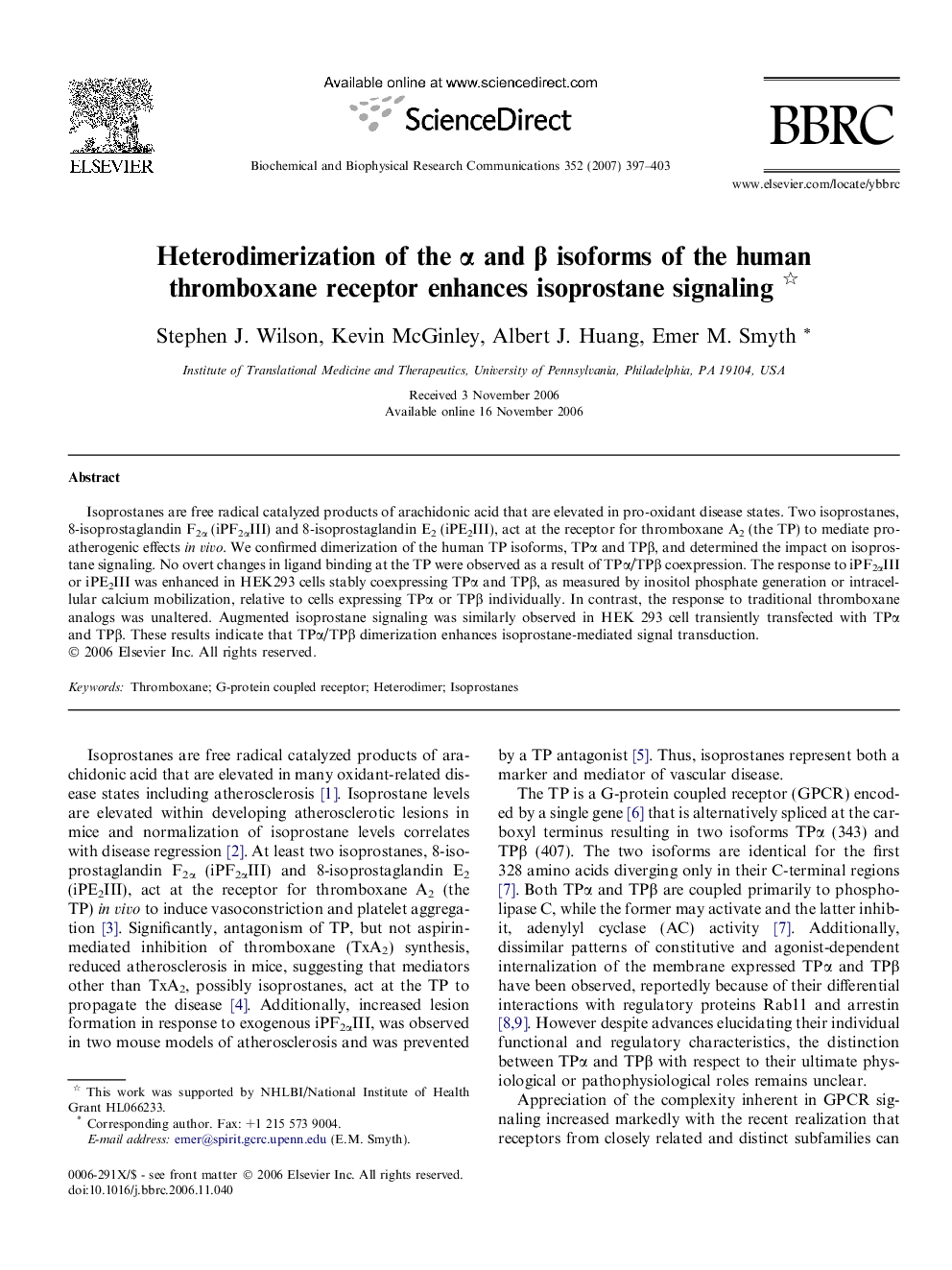| Article ID | Journal | Published Year | Pages | File Type |
|---|---|---|---|---|
| 10767574 | Biochemical and Biophysical Research Communications | 2007 | 7 Pages |
Abstract
Isoprostanes are free radical catalyzed products of arachidonic acid that are elevated in pro-oxidant disease states. Two isoprostanes, 8-isoprostaglandin F2α (iPF2αIII) and 8-isoprostaglandin E2 (iPE2III), act at the receptor for thromboxane A2 (the TP) to mediate pro-atherogenic effects in vivo. We confirmed dimerization of the human TP isoforms, TPα and TPβ, and determined the impact on isoprostane signaling. No overt changes in ligand binding at the TP were observed as a result of TPα/TPβ coexpression. The response to iPF2αIII or iPE2III was enhanced in HEK293 cells stably coexpressing TPα and TPβ, as measured by inositol phosphate generation or intracellular calcium mobilization, relative to cells expressing TPα or TPβ individually. In contrast, the response to traditional thromboxane analogs was unaltered. Augmented isoprostane signaling was similarly observed in HEK 293 cell transiently transfected with TPα and TPβ. These results indicate that TPα/TPβ dimerization enhances isoprostane-mediated signal transduction.
Related Topics
Life Sciences
Biochemistry, Genetics and Molecular Biology
Biochemistry
Authors
Stephen J. Wilson, Kevin McGinley, Albert J. Huang, Emer M. Smyth,
